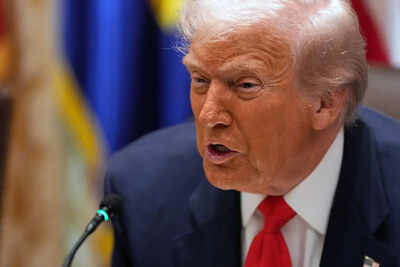ARTICLE AD BOX

Dartmouth College has rejected the Trump administration’s proposed higher education compact, College President Sian Leah Beilock announced in a campus-wide email on Friday.The compact, sent to Dartmouth and eight other universities on October 1, 2025, offered federal funding benefits in exchange for broad adjustments to admissions and academic policies, including limits on international student enrollment, a binary definition of sex and gender, and measures to curb grade inflation.“I do not believe that a compact — with any administration — is the right approach to achieve academic excellence, as it would compromise our academic freedom, our ability to govern ourselves, and the principle that federal research funds should be awarded to the best, most promising ideas,” Beilock wrote.
Communication with the White House
Beilock said she communicated this position to the White House during a call on Thursday. The College’s decision follows consultations with Dartmouth’s Board of Trustees and comes two days ahead of the White House’s October 20 deadline for responses.
Among the nine schools initially approached, Dartmouth is the last Ivy League institution to reject the compact, following Brown University and the University of Pennsylvania.
Campus concerns over academic freedom
Since the announcement of the compact, members of the Dartmouth community have expressed concern that the proposals could restrict academic freedom. Senior Vice President for Campus Life Jennifer Rosales told the Dartmouth Student Government on October 5, 2025, that the compact conflicted with the College’s policies and mission, The Dartmouth reports.
Remaining open to collaboration
In her response to the administration, Beilock emphasized that Dartmouth remains open to alternative forms of collaboration with the federal government. “I welcome further engagement around how we can (a) enhance the long-standing partnership between the federal government and this country’s leading research universities and (b) ensure that higher education stays focused on academic excellence,” she wrote.
The broader perspective
Beilock’s comments echoed broader concerns about the importance of maintaining a strong relationship between universities and the federal government. She mentioned that this partnership has been instrumental in advancing research, supporting an educated workforce, and sustaining the United States’ global leadership in science, technology, and defense.
Dartmouth joins six universities in rejection
With Dartmouth’s decision, six institutions have formally rejected the compact. They include the Massachusetts Institute of Technology, Brown University, the University of Pennsylvania, the University of Southern California, the University of Virginia, and now Dartmouth College.

 7 hours ago
5
7 hours ago
5









 English (US) ·
English (US) ·